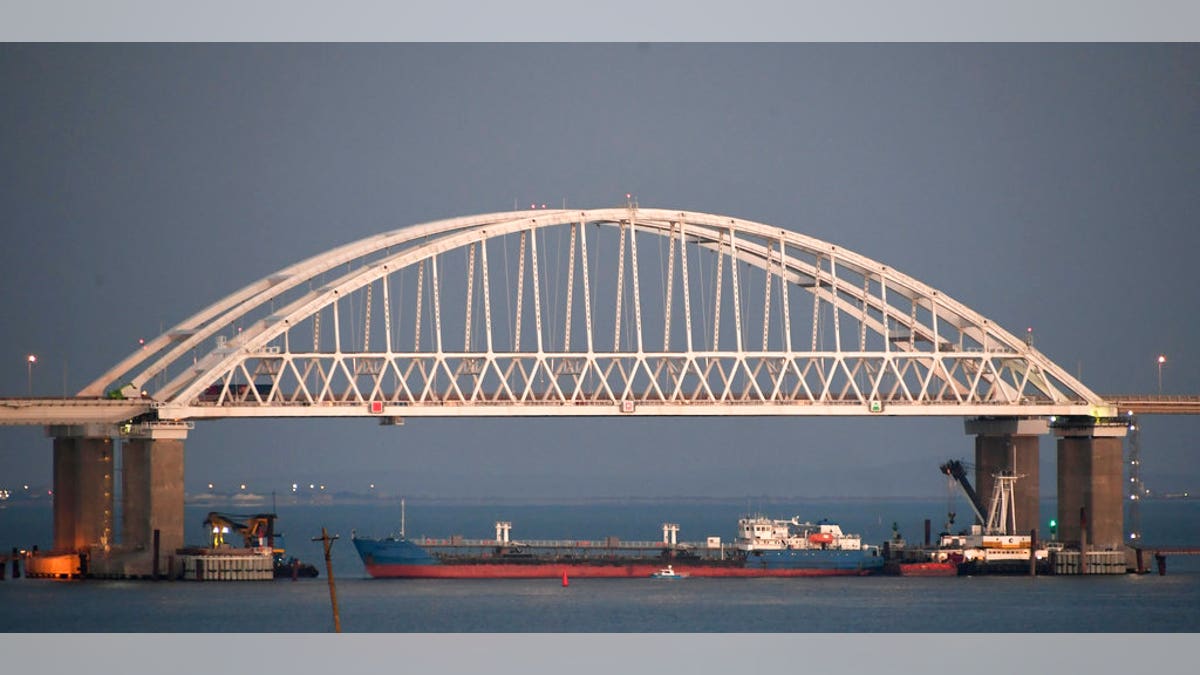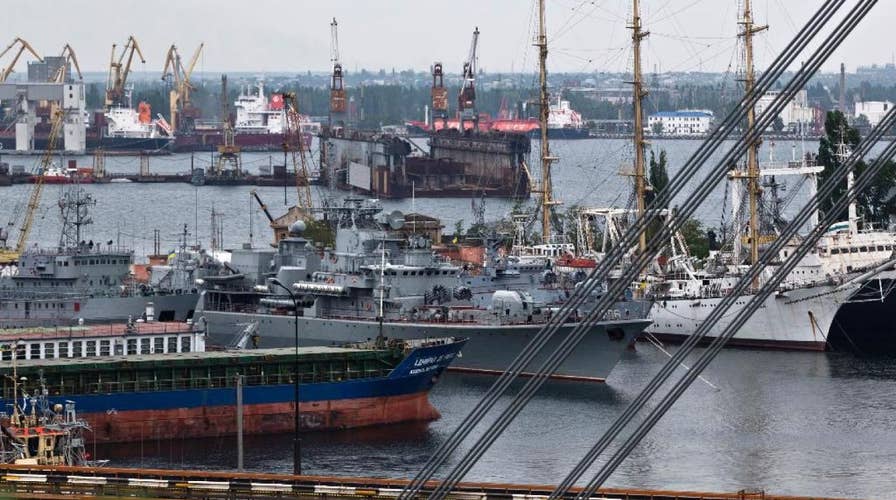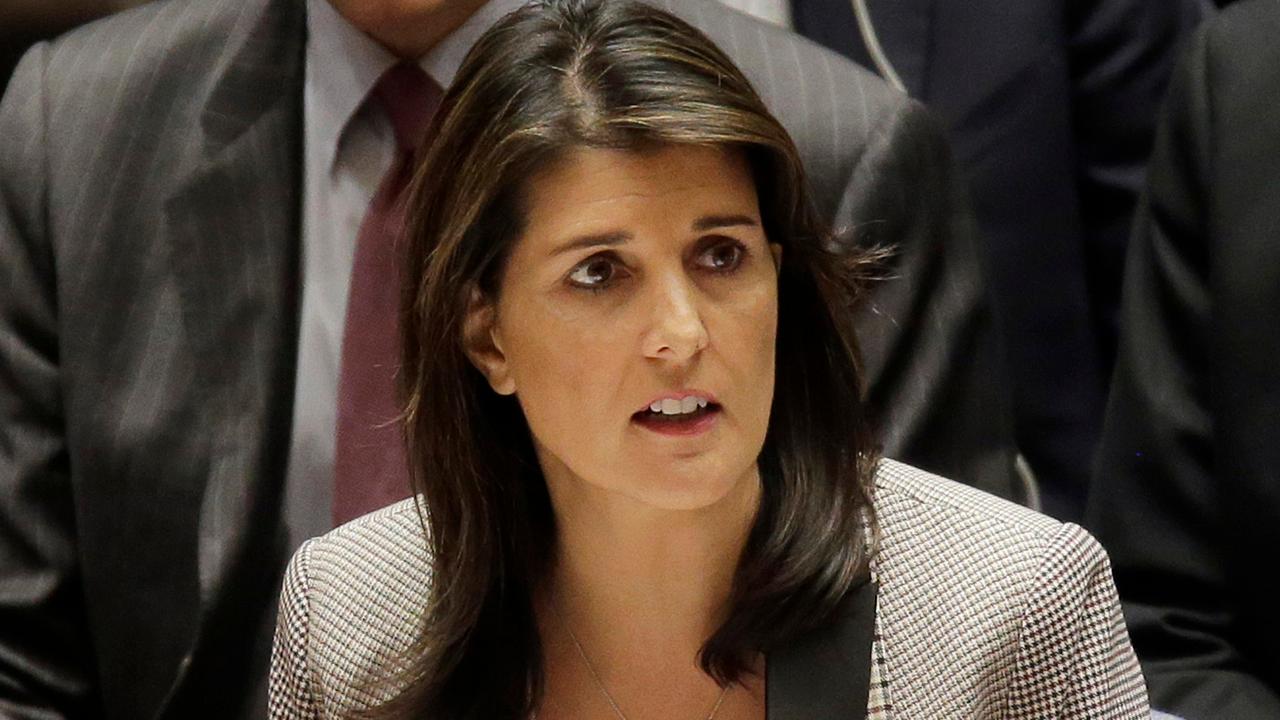Russian military open fire, seize Ukrainian naval vessels
Russian military opened fire on and seized two Ukrainian naval vessels hours after a Russian coast guard vessel rammed into a Ukrainian navy tugboat.
The tense tug-of-war between Russia and Ukraine escalated Monday, a day after three Ukrainian naval vessels were reportedly fired at and then captured by Russian coast guard ships – actions denounced by the U.S. ambassador to the United Nations as “outrageous” and a "provocation."
Nikki Haley, speaking at an emergency UN Security Council meeting Monday, said Russia’s reported actions in the Kerch Strait were an “outrageous violation of sovereign Ukrainian territory” and marked “yet another reckless Russian escalation.”
"[It's] an arrogant act that the international community must condemn," she added. "The United States will continue to stand with the people of Ukraine."
Haley’s comments come a day after a clash between the two contentious neighbors that began after the Ukrainian navy claimed a Russian coast guard vessel rammed a tugboat that was transporting artillery boats from Odessa on the Black Bea to Mariupol in the Sea of Azov, via the Kerch Strait.
The attack further escalated tensions between the two nations, which have been locked in a stalemate since Russia’s 2014 annexation of Crimea.
"We consider it as an act of aggression against our state and a very serious threat," Ukrainian President Petro Poroshenko said earlier Monday. "Unfortunately, there are no 'red lines' for the Russian Federation."
Poroshenko on Monday demanded Russia immediately release the sailors and ship seized, before signing a decree to introduce martial law across the country. Initially, he sought it for 60 days but later halved his proposal to 30 days in an apparent concession to opponents.
In a slew of Twitter posts, Poroshenko appeared to say that as “president and Supreme Commander” he has imposed martial law throughout the country, effective Wednesday.
“The introduction of martial law does not involve measures related to limiting the rights and freedoms of citizens or the introduction of censorship,” he said on Twitter.
The emergency measures, if approved, include a partial mobilization, a strengthening of the country’s air defense as well as a plethora of vaguely worded steps such as the “strengthening” of anti-terrorism measures and “information security.”
The clash Sunday began after the Ukrainian navy claimed a Russian coast guard vessel rammed a tugboat that was transporting artillery boats from Odessa on the Black Bea to Mariupol in the Sea of Azov, via the Kerch Strait.
“Russian coast guard vessels…carried out openly aggressive actions against Ukrainian navy ships,” the Ukrainian navy said in a statement, adding the tugboat’s engine, hull, side railing, and a lifeboat were damaged.

A ship under the Kerch bridge blocks the passage to the Kerch Strait near Kerch, Crimea. (AP)
The attack further escalated tensions between the two nations, which have been locked in a stalemate since Russia’s 2014 annexation of Crimea.
"We consider it as an act of aggression against our state and a very serious threat," the president said earlier Monday. "Unfortunately, there are no 'red lines' for the Russian Federation."
The two nations were quick to point fingers for Sunday’s clash with Ukraine maintaining its vessels were traveling in line with international maritime rules. Russia’s foreign minister claimed Ukraine violated international law and provoked the attack by sending its vessels through the Kerch Strait without permission.
“It’s obvious that this painstakingly thought-through and planned provocation was aimed at igniting another source of tension in the region in order to create a pretext to ramp up sanctions against Russia,” the Russian foreign ministry said in a statement.
“We’d like to warn the Ukrainian side that the policy of provoking a conflict with Russia in the area of the Sea of Azov and the Black Sea, which has been pursued by Kiev in coordination with the United States and the European Union, is fraught with serious consequences.”
The narrow strait is the only passage between the Black Sea and the Sea of Azov. It’s spanned by an 11.8-mile bridge that Russia completed this year.
"There is no doubt that it was done by blessing or, perhaps, even a direct order from the top," said Russian Foreign Minister Sergey Lavrov. "While planning that provocation, Ukraine had undoubtedly hoped to get additional benefits from the situation, expecting the U.S. and Europe to blindly take the provocateurs' side."
He urged the West to "calm down those in Ukraine who are trying to unleash a military hysteria to get political gains in connection with the planned elections" — a reference to Ukraine's presidential vote in March.

Ukrainian lawmakers listen to parliament speaker Andriy Parubiy, center, during a parliament session in Kiev, Ukraine, Monday, Nov. 26, 2018. Ukrainian President Petro Poroshenko has signed a bill to impose martial law in the country in the wake of Russia's seizure of three ships and their crews. The Supreme Rada is due to vote on the issue later Monday for it to go into force. (AP Photo/Efrem Lukatsky)
The European Union and NATO called for restraint from both sides.
“We strongly support Ukraine sovereignty and territorial integrity within its internationally recognized borders, extending to its territorial waters,” Haley said. “We express our deep concern over the incident, which represent a dangerous escalation and violation of international law.”
NATO said Secretary-General Jens Stoltenberg expressed the U.S.-led military alliance’s “full support for Ukraine’s territorial integrity and sovereignty, including its full navigational rights in its territorial waters under international law.”
The incident came after months of incidents in the Sea of Azov that involved inspections and seizures of ships.
While a 2003 treaty designates the Kerch Strait and Sea of Azov as shared territorial waters, Russia has sought to assert greater control over the passage since the annexation of Crimea.
Fox News' Bradford Betz and the Associated Press contributed to this report.










































